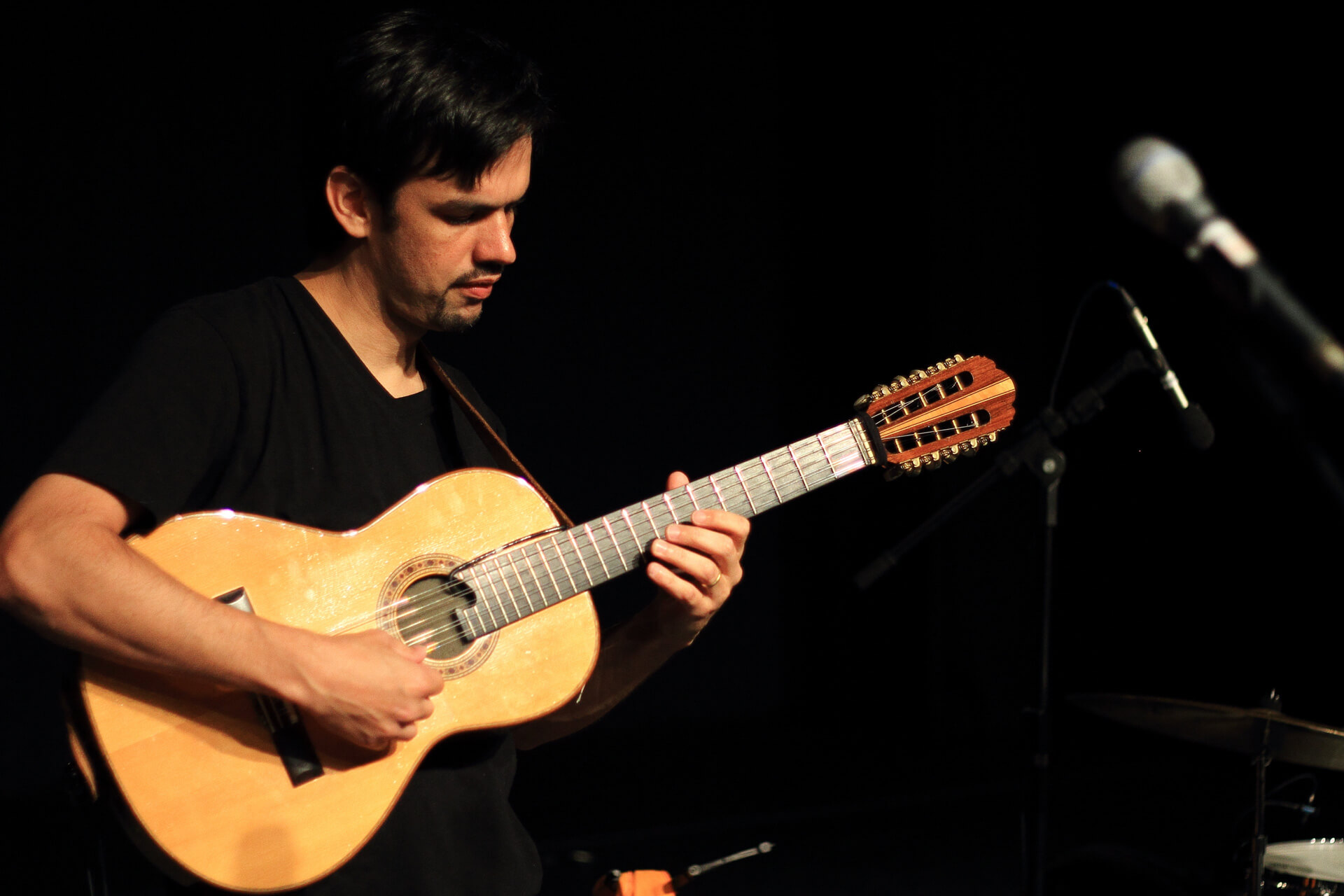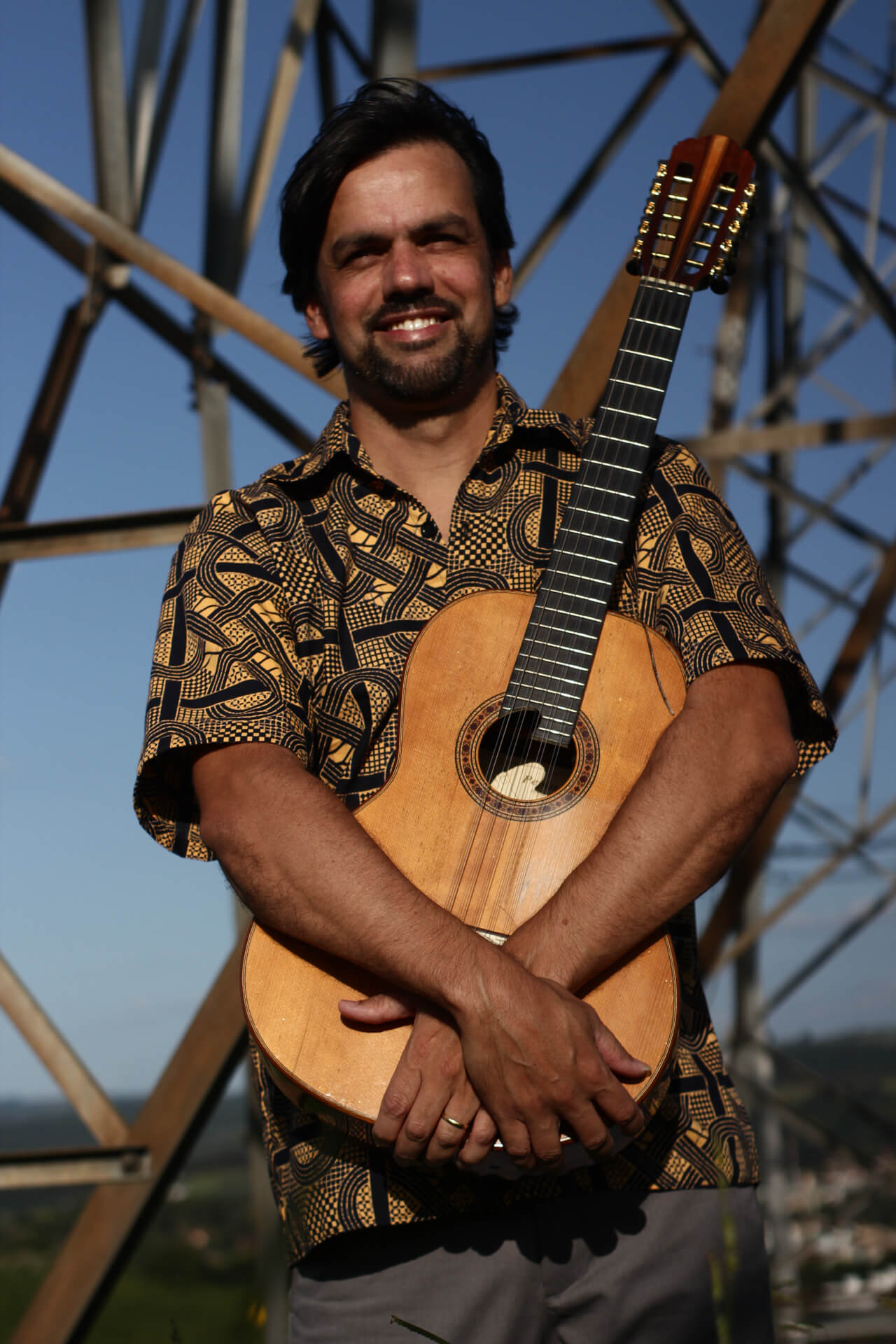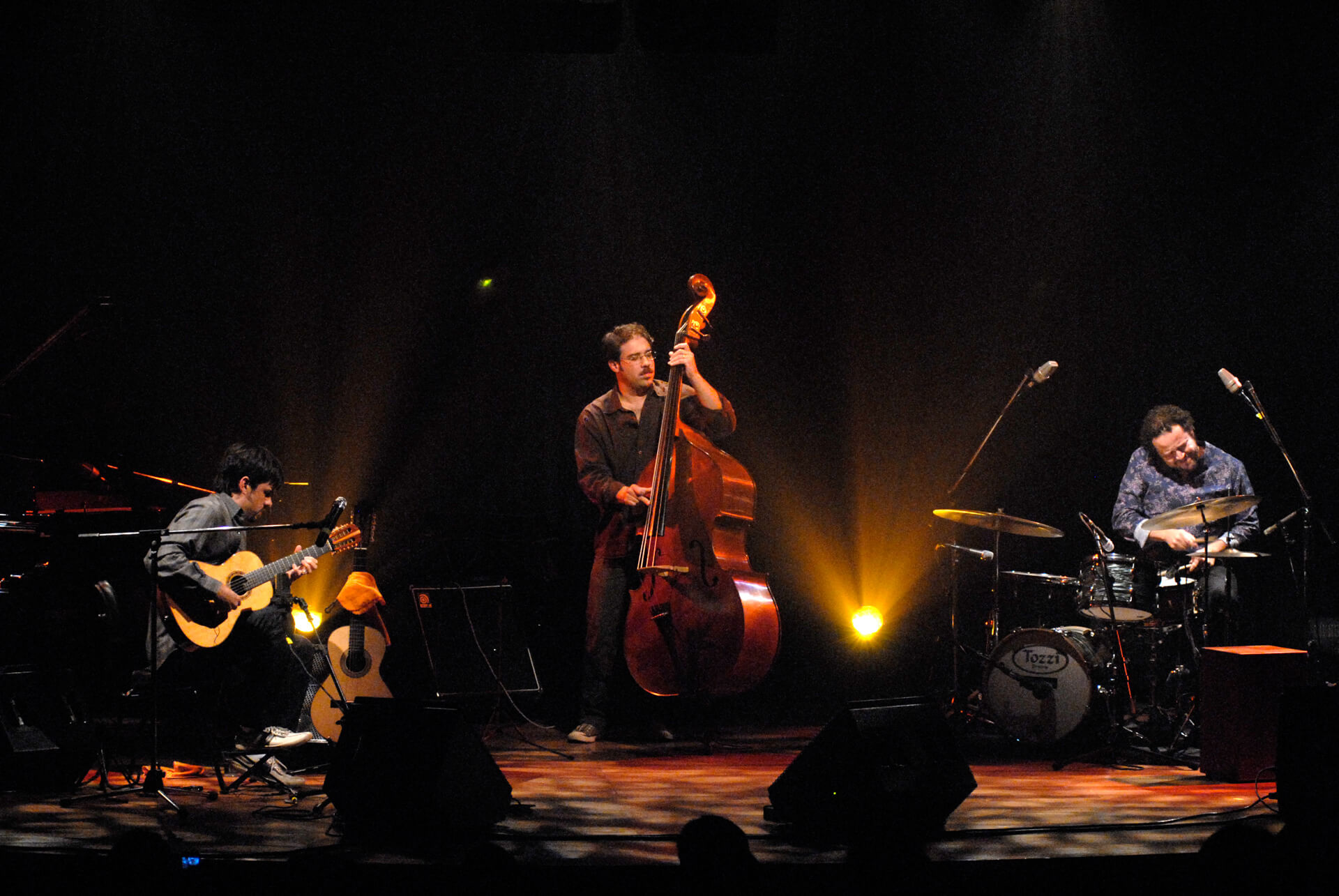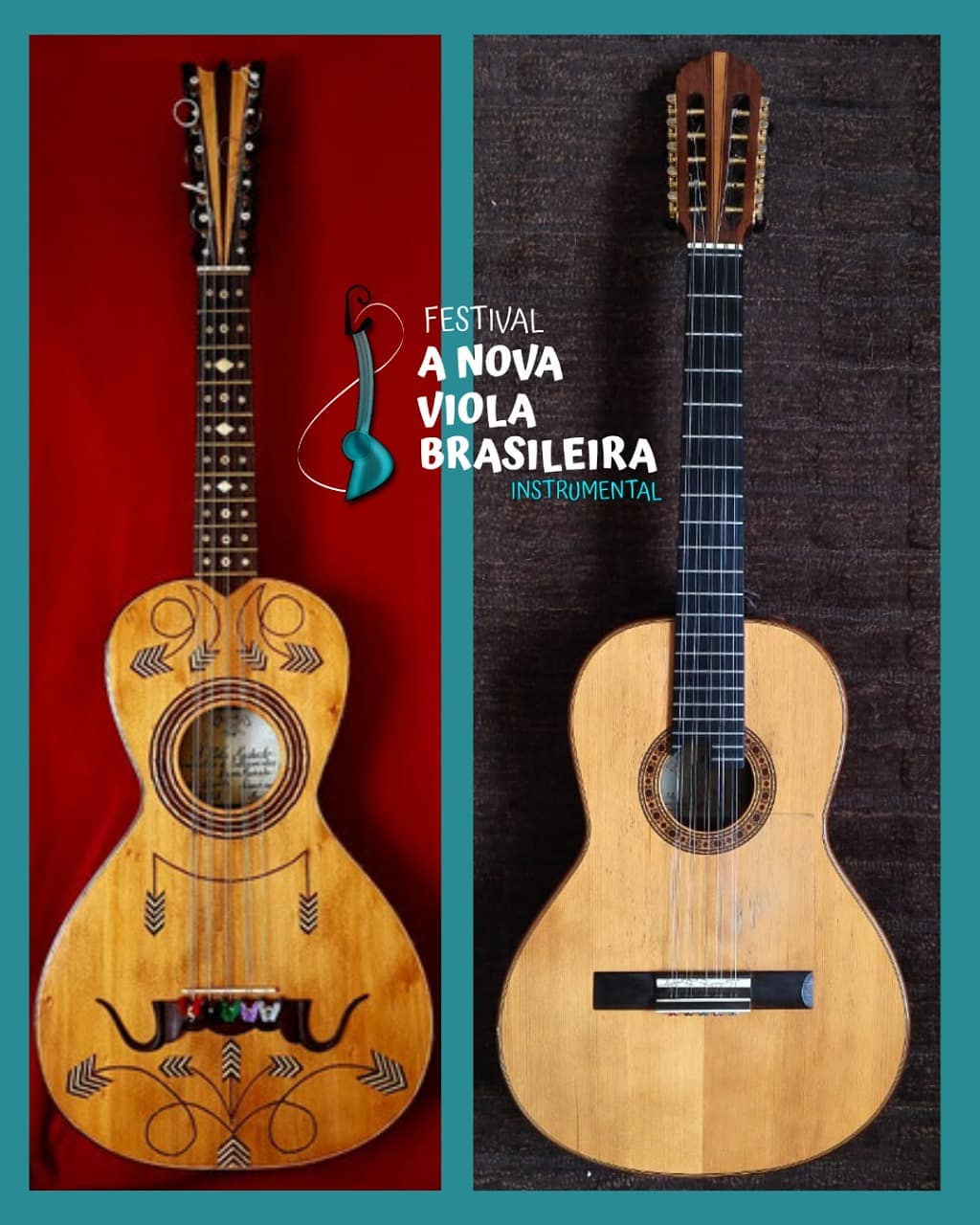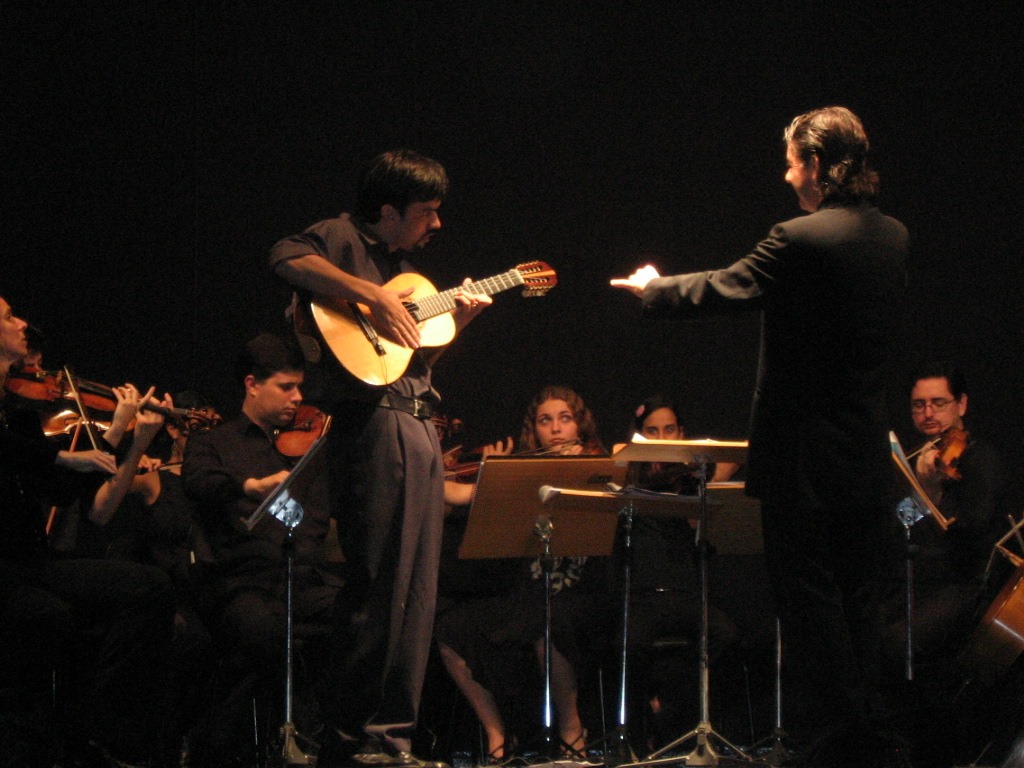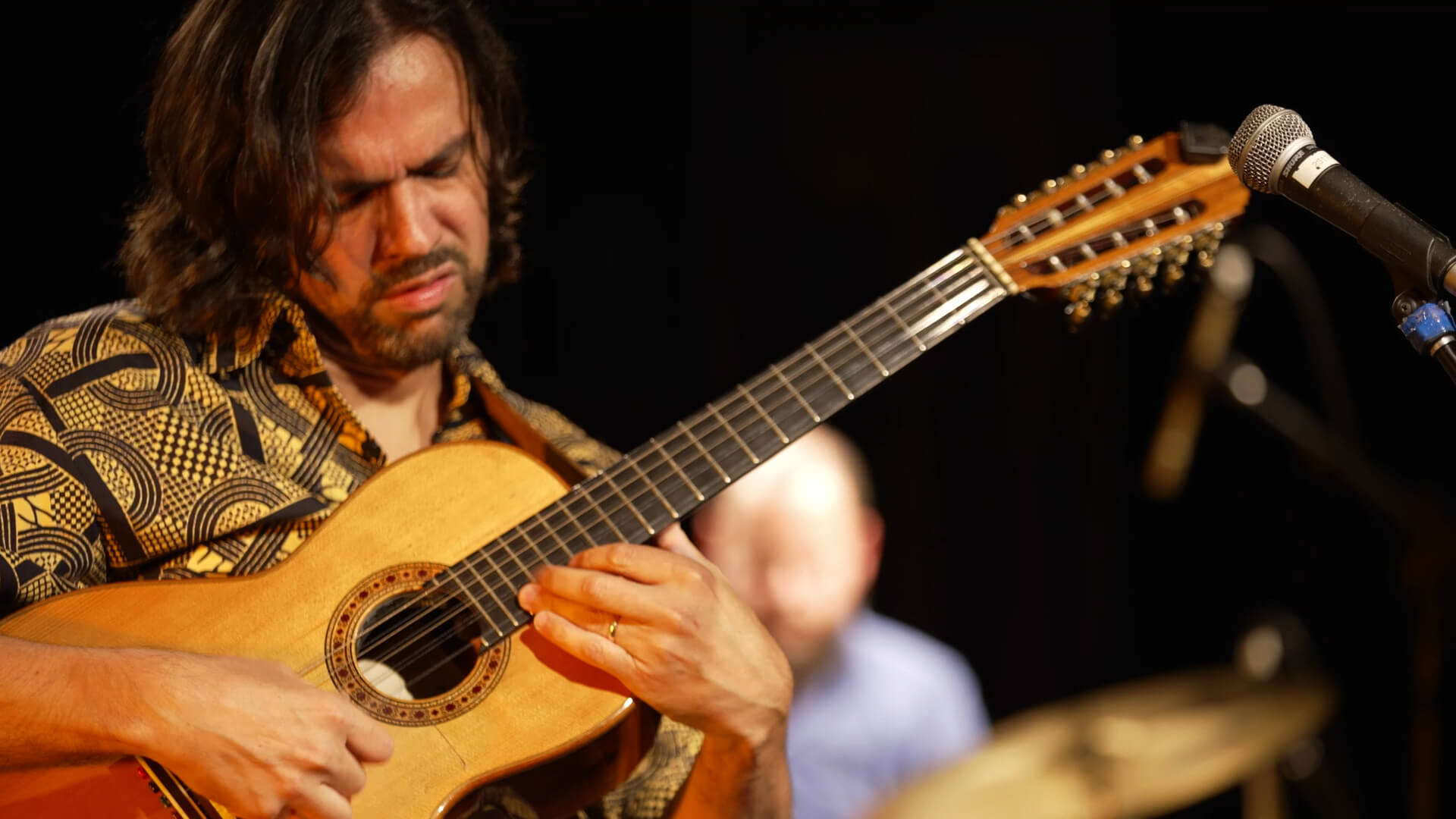The viola, the musical instrument that best represents the countryside of Brazil, fully harmonized and integrated into modern jazz
“Happiness, that’s what I felt when I heard the wonderful work of João Paulo Amaral. It is impressive to appreciate this talented guitarist and composer. Above all, we must recognize his dedication to instrumental music. Despite its portuguese origin, the viola is the musical instrument that best represents the interior of Brazil, its forests, rivers, waterfalls, birds and all the other natural beauties of our country. (…) in addition to the very well-defined regional colors and nuances, we have discovered a viola of the future, fully harmonized with the jazz-like bass and drums (…) but which, with the viola, speak to us of new musical paths and deeply enriching for Brazilian music. Congratulations João Paulo Amaral!”
Paulo Bellinati
“… with his technique alone, he has already printed his name in the history of the viola”
Ivan Vilela
“Music can be beautiful, difficult, interesting and many other things. In the hands of João Paulo, music is art!”
Ulises Rocha
Read more about the artist
Celebrating a 20-year career dedicated to the viola, a Brazilian 10-string guitar, and expanding his horizons, musician and composer João Paulo Amaral launches AÇO DA TERRA (Steel of the Earth). With Alberto Luccas (double bass), Ana Luiza (voice), Cleber Almeida (drums), Ricardo Herz (violin) and his 82-year-old father, Valdo (voice), the album brings authorial instrumental compositions and his arrangements for songs like Clube da Esquina 2 (Milton Nascimento, Lô and Márcio Borges) and Cuitelinho (Domínio Publico) to the repertoire.
A pioneer in combining the traditional viola with the double bass and drums as in a jazz trio, Amaral stands out for uniting rhythms from the Brazilian countryside, improvisation, virtuosity and modernity.
AÇO DA TERRA brings the proposal of seeking a contemporary and inventive sound (“AÇO – Acero”) without renouncing traditional roots (“TERRA – Tierra”). There are eight instrumental compositions and three songs, with the songs that the musician has been compiling for ten years and that explore genres such as arrasta-pé, polka, chamamé, pagode caipira, viola fashion, cateretê, toada, samba and jazz in different tunings of viola, such as cebolão, boiadeira, rio abaixo and sobre-requinta.
“De Abaeté a Campo Grande”, which opens the album and is also released as a single, is a modern arrasta-pé mixed with Paraguayan polka. Dedicated to the viola masters Renato Andrade and Almir Sater, it features Alberto Luccas (acoustic double bass) and Cleber Almeida (drums), partners of João Paulo Amaral since Viola Brasileira (2010), a pioneering album in this jazz concept of trio with viola . The trio allows musicians to play with freedom, including moments with viola improvisation, known as one of the key signatures of Amaral, also present on other tracks. “Suíte Tião Carreiro”, the composition made for solo viola, was inspired by 13 of Tião Carreiro’s themes, and translates into the music admiration and knowledge acquired during Amaral’s master’s research dedicated to this viola icon.
The singer Ana Luiza, Amaral’s sister, participates in two songs, marking her debut as a duet with her brother: “Clube da Esquina 2” (Milton Nascimento, Lô Borges and Márcio Borges), also released as a single, and the instrumental “A Mulher e o Mar”. The violinist Ricardo Herz plays on two songs: “Tempero Goiano” and “Refugiados da Luz”, also with Alberto Luccas and Cleber Almeida. AÇO DA TERRA brings as a special guest Valdo, the father of João Paulo Amaral, at the age of 82. Singing his poem “Remédio do Mato” with his son, who brought the song to life, the song celebrates the emotional side of singing, fishing and family life that gave rise to this musician.
Both the preparation and the recording of the album were highlighted in the AÇO DA TERRA Diary, made up of 40 chapters of mini-videos and texts, published on the musician’s YouTube, Instagram and Facebook. The release of the album had 7 live broadcasts through the artist’s social networks. The album is available on all digital platforms. The project was financed with resources from ProAC Edital (Government of the State of São Paulo).
João Paulo Amaral
Born in Mogi das Cruzes-SP, his first contact with countryside music (música caipira) was in his childhood, when he accompanied his father in singing. Graduated in acoustic guitar and post-graduated by State University of Campinas with the 1st master’s degree in music about “viola caipira” (about Tião Carreiro), he is a professor at EMESP Tom Jobim and creator of the Viola da Terra Festival. He participated in the 3rd edition (Online Festival 2021) of the historic Violeiros do Brasil – Brazilian Memory Project. In addition to his solo career, and a member of the “Trio Conversa Ribeira”, he is the director of the Orquestra Filarmonica de Violas.
He participated in festivals and concerts in Portugal, Spain, England, Mexico and the United States, recording more than 30 albums and projects with names like Renato Teixeira, Robertinho Silva, Natan Marques, Guinga, Toninho Ferragutti and Nailor Proveta.
More information joaopauloamaral.com.br

Listen to all the music in Spotify
